The National Research Program in Antarctica (PNRA)
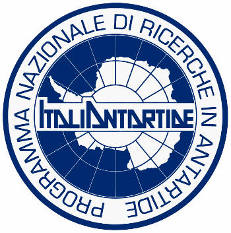 Since its first expeditions in 1968, 1973 and 1978, the CNR has strongly supported the diplomatic action of the MAECI (Ministry of Foreign Affairs and International Cooperation) which led to the accession of Italy to the Antarctic Treaty. The CNR initially contributed to identifying the construction site of the Italian station Mario Zucchelli and is currently coordinating the different lines of scientific activity of the National Research Program in Antarctica (PNRA). The implementation of research in Antarctica is carried out by the national scientific community, of which 51% are university research groups, 23% CNR research groups, 9% from INGV, 5% from ENEA, 4 % from OGS and INAF and the remaining 4 % is carried out by other institutions. The scientific priorities identified within the framework of the National Research Program in Antarctica, are mostly multidisciplinary, and can be traced around the following topics: dynamics of the atmosphere and climate processes, dynamics of the polar ice cap, solid earth dynamics, polar ocean dynamics, Sun-Earth relationships and space-weather, the universe above Antarctica, evolution, adaptation and biodiversity, humankind in extreme environments, environmental contamination, paleoclimate, environmental issues and risks, as well as technology: innovation and experimentation. In many of these research areas, the CNR’s activity, thanks to its research network, is at an excellent level, although it is still fragmented into numerous institutes belonging to various departments.
Since its first expeditions in 1968, 1973 and 1978, the CNR has strongly supported the diplomatic action of the MAECI (Ministry of Foreign Affairs and International Cooperation) which led to the accession of Italy to the Antarctic Treaty. The CNR initially contributed to identifying the construction site of the Italian station Mario Zucchelli and is currently coordinating the different lines of scientific activity of the National Research Program in Antarctica (PNRA). The implementation of research in Antarctica is carried out by the national scientific community, of which 51% are university research groups, 23% CNR research groups, 9% from INGV, 5% from ENEA, 4 % from OGS and INAF and the remaining 4 % is carried out by other institutions. The scientific priorities identified within the framework of the National Research Program in Antarctica, are mostly multidisciplinary, and can be traced around the following topics: dynamics of the atmosphere and climate processes, dynamics of the polar ice cap, solid earth dynamics, polar ocean dynamics, Sun-Earth relationships and space-weather, the universe above Antarctica, evolution, adaptation and biodiversity, humankind in extreme environments, environmental contamination, paleoclimate, environmental issues and risks, as well as technology: innovation and experimentation. In many of these research areas, the CNR’s activity, thanks to its research network, is at an excellent level, although it is still fragmented into numerous institutes belonging to various departments.
Arctic research of the CNR
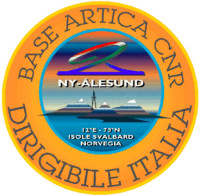 The Italian presence in the Arctic became permanent in the mid-nineties, thanks to the opening of the CNR station in the Svalbard Islands. In recent years, the interests of the Italian scientific community have been extended to other remote areas such as Greenland, areas of the Arctic Ocean, the Tibetan plateau and the Himalayas. In addition to the CNR, OGS, ENEA, INGV, INAF, ASI and some universities carry out research activities in these areas. In addition, Italy has strong economic interests in the Arctic with numerous industries that are active in this area, including ENI, Finmeccanica, Telespazio, E-geos, and Fincantieri. Since 1997 the has CNR carried out research in Ny-Ålesund in cooperation with national and international universities and other scientific institutions. The topics include climate, manmade pollution, instability of the ozone layer, the physical properties of aerosols and clouds in their role in radiation balances, ecology, genetics, physiology, biochemistry and the molecular and cellular biology of polar organisms, the optical properties of glacial surfaces, geochemistry, environment and permafrost, oceanography aimed at studying the transfer of energy and matter in relation to glacial coverage and, finally, historical and geographical studies that evaluate the Italian contribution to polar exploration and research. Recently there has been an intensification in the study of legal issues of specific to the Arctic with advice given to the Ministry of Foreign Affairs within the framework of the Arctic round table.
The Italian presence in the Arctic became permanent in the mid-nineties, thanks to the opening of the CNR station in the Svalbard Islands. In recent years, the interests of the Italian scientific community have been extended to other remote areas such as Greenland, areas of the Arctic Ocean, the Tibetan plateau and the Himalayas. In addition to the CNR, OGS, ENEA, INGV, INAF, ASI and some universities carry out research activities in these areas. In addition, Italy has strong economic interests in the Arctic with numerous industries that are active in this area, including ENI, Finmeccanica, Telespazio, E-geos, and Fincantieri. Since 1997 the has CNR carried out research in Ny-Ålesund in cooperation with national and international universities and other scientific institutions. The topics include climate, manmade pollution, instability of the ozone layer, the physical properties of aerosols and clouds in their role in radiation balances, ecology, genetics, physiology, biochemistry and the molecular and cellular biology of polar organisms, the optical properties of glacial surfaces, geochemistry, environment and permafrost, oceanography aimed at studying the transfer of energy and matter in relation to glacial coverage and, finally, historical and geographical studies that evaluate the Italian contribution to polar exploration and research. Recently there has been an intensification in the study of legal issues of specific to the Arctic with advice given to the Ministry of Foreign Affairs within the framework of the Arctic round table.
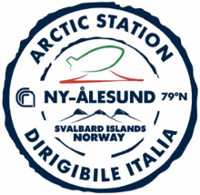 Contrary to the National Antarctic Research Programme, research in the Arctic has not received structured funding until very recently. However, within the CNR, the Department of Earth Sciences and Technologies for the Environment (DSSTTA) has always supported part of the logistical and research activities at the station Dirigibile Italia in the Svalbard Islands. Very recently (2018) an Arctic Research Program (PRA) was established, like that for Antarctica, although it is not yet permanent.
Contrary to the National Antarctic Research Programme, research in the Arctic has not received structured funding until very recently. However, within the CNR, the Department of Earth Sciences and Technologies for the Environment (DSSTTA) has always supported part of the logistical and research activities at the station Dirigibile Italia in the Svalbard Islands. Very recently (2018) an Arctic Research Program (PRA) was established, like that for Antarctica, although it is not yet permanent.
Within this frame of reference there is an urgent need to strengthen the position of Italy in the polar regions. This must be done by developing proposal capacities, and aggregating the management of Community funds directed towards polar research. Polar activities are based on the concept of maximum effectiveness of the financing, and should provide, with a limited investment, a strong opportunity to include Italian research in European projects, while involving universities and other research institutions.
POLARNET
 On December 6th, 2006, the CNR, with the decision of the Director of the then Department of Earth and Environment, constituted the Polarnet Support Organizational Unit to respond to the increasingly pressing need to have a structure that promoted, coordinated and managed the polar activities of its researchers.
On December 6th, 2006, the CNR, with the decision of the Director of the then Department of Earth and Environment, constituted the Polarnet Support Organizational Unit to respond to the increasingly pressing need to have a structure that promoted, coordinated and managed the polar activities of its researchers.
Polarnet was thus a first step towards the birth of a Polar Institute, establishing a coordinated system of CNR Research Institutes strongly involved in the polar sciences and presenting themselves as a focal point and a forum for national and international scientific cooperation on polar issues.
The Polarnet Support Organizational Unit had the task of annually updating the Research Program in Polar Areas, that is, all the Antarctic and Arctic projects that the CNR coordinates or participates in with its own research units. The Research Program in Polar Areas is a programming element for the Assembly of Directors which approves the management and coordination activities of the Polarnet Network, any assistance to the Antarctica Consortium and the related budgets that make up the Annual Programme of Activities.
INSTITUTE OF POLAR SCIENCES – ISP
The idea
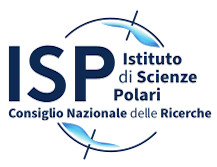 Italian researchers involved in research in polar areas and other remote areas of the planet are involved in highly interdisciplinary research in life sciences, Earth and climate sciences, marine sciences, atmospheric and space sciences, in addition to technological innovation. But national research in polar areas has often been very fragmented and scarcely visible in an international context, because, although carried out within highly qualified research groups, they have so far only been individually recognizable and not associated with a national structure.
Italian researchers involved in research in polar areas and other remote areas of the planet are involved in highly interdisciplinary research in life sciences, Earth and climate sciences, marine sciences, atmospheric and space sciences, in addition to technological innovation. But national research in polar areas has often been very fragmented and scarcely visible in an international context, because, although carried out within highly qualified research groups, they have so far only been individually recognizable and not associated with a national structure.
The natural consequence of this situation was the strengthening of the idea, to the point of necessity, of a Polar Institute that could act as a recognized interlocutor for the international scientific community in the field of polar research. The lack of a research institute in the polar regions in Italy was an anomaly in the European and international context. The new Institute of Polar Sciences remedies this anomaly and intends to restore Italy to its rightful status among the nations that play a decisive role in research in the polar and high-altitude areas.
One of the tasks of the Institute of Polar Sciences is to enhance the indisputable scientific relevance and capabilities of the CNR in the field of polar research and to establish a research platform to catalyze, promote and implement national research programs in polar regions, within a framework of international cooperation and coordination, with particular reference to the strategies implemented by the European Community.
Polar research, as well as being an irreplaceable driver of international scientific collaboration, is a valuable tool to support the continuous commitment of the international community towards research geared to mitigation and adaptation to climate change, the major challenge of our century. In addition, polar research also plays an important strategic role for the country, allowing Italy to previously join the Antarctic Treaty, and more recently to sit as a permanent observer on the Arctic Council.
The reasons
 The structure and financing of Italian research at the poles, however, presented significant structural deficiencies that could only have been overcome with some changes in organization and governance, by taking inspiration from what is implemented in other countries, such as: Britain - British Antarctic Survey (BAS), France - Institut Polaire Français Paul Emile Victor (IPEV), Denmark - Danish Polar Center (DPC), Germany - Alfred Wegener Institut (AWI), Norway - Norsk Polar Institutt (NPI), Russia - Arctic Antartic Research Institute (AARI), USA- NSF Polar Programme, Switzerland - Swiss Polar Institute (SPI).
The structure and financing of Italian research at the poles, however, presented significant structural deficiencies that could only have been overcome with some changes in organization and governance, by taking inspiration from what is implemented in other countries, such as: Britain - British Antarctic Survey (BAS), France - Institut Polaire Français Paul Emile Victor (IPEV), Denmark - Danish Polar Center (DPC), Germany - Alfred Wegener Institut (AWI), Norway - Norsk Polar Institutt (NPI), Russia - Arctic Antartic Research Institute (AARI), USA- NSF Polar Programme, Switzerland - Swiss Polar Institute (SPI).
The National Scientific Commission for Antarctica (CSNA) has repeatedly drawn the attention of political decision-makers towards a high-profile reform that established an Italian polar entity, that leads under a single strategic direction the research and logistics, of Antarctic and Arctic science. The long-term strategy should be implemented through a series of intermediate steps accompanied and followed by careful analysis and evaluation by MIUR. Within these intermediate steps lies the birth of the Institute of Polar Sciences of the CNR.
The general vision shared at a meeting held at the Accademia dei Lincei on June 10th, 2016 (attended by Massimo Inguscio, Gianluigi Benedetti, Vincenzo Di Felice, Enrico Brugnoli and Carlo Barbante) included a short/medium term project (2016-2025) with the establishment of an interdepartmental Institute created within the CNR, merging functions that were until then dispersed between different organisms. Further developments should subsequently be possible following a possible future revision of the legislation then in force. An important pillar of this was the establishment of funding for research in the Arctic and the so-called Third Pole with the creation of a National Polar Research Programme (PNRP).
The Birth
 The creation of the Institute of Polar Sciences thus fills a gap in the national scientific system and corrects an anomaly at the international level. The Italian polar scientific community, in fact, has for years been carrying out research of a high international standard, although it has never had a body of scientific and cultural aggregation and promotion and technical administrative skills to provide a strategic vision of multi-annual research and to encourage and coordinate all activities.
The creation of the Institute of Polar Sciences thus fills a gap in the national scientific system and corrects an anomaly at the international level. The Italian polar scientific community, in fact, has for years been carrying out research of a high international standard, although it has never had a body of scientific and cultural aggregation and promotion and technical administrative skills to provide a strategic vision of multi-annual research and to encourage and coordinate all activities.
The establishment of the Institute of Polar Sciences therefore makes it possible to implement the simplification of decision-making and operating procedures in order to encourage greater internationalization and the occupation of new cultural and scientific spaces, especially thanks to the possibility of having a long term programme that is compatible with that of the various countries that are interested in collaboration with Italy.
The Institute, established by measure n.81 on 31/05/2019 by President Inguscio, belongs to the Department of Earth System Sciences and Technologies for the Environment (DSSTTA) as of June 1st, 2019.
The mission of the Institute of Polar Sciences is to contribute to increasing the quality of scientific and technological research carried out by Italy in the polar regions.
At its establishment, June 1st, 2019 and until April 31st, 2020, ISP has had an acting director in the figure of Dr. Leonardo Langone. From May 1st, 2020 the first director of ISP was appointed following a public competition, and Prof. Carlo Barbante, took office.
 Since its first expeditions in 1968, 1973 and 1978, the CNR has strongly supported the diplomatic action of the MAECI (Ministry of Foreign Affairs and International Cooperation) which led to the accession of Italy to the Antarctic Treaty. The CNR initially contributed to identifying the construction site of the Italian station Mario Zucchelli and is currently coordinating the different lines of scientific activity of the National Research Program in Antarctica (PNRA). The implementation of research in Antarctica is carried out by the national scientific community, of which 51% are university research groups, 23% CNR research groups, 9% from INGV, 5% from ENEA, 4 % from OGS and INAF and the remaining 4 % is carried out by other institutions. The scientific priorities identified within the framework of the National Research Program in Antarctica, are mostly multidisciplinary, and can be traced around the following topics: dynamics of the atmosphere and climate processes, dynamics of the polar ice cap, solid earth dynamics, polar ocean dynamics, Sun-Earth relationships and space-weather, the universe above Antarctica, evolution, adaptation and biodiversity, humankind in extreme environments, environmental contamination, paleoclimate, environmental issues and risks, as well as technology: innovation and experimentation. In many of these research areas, the CNR’s activity, thanks to its research network, is at an excellent level, although it is still fragmented into numerous institutes belonging to various departments.
Since its first expeditions in 1968, 1973 and 1978, the CNR has strongly supported the diplomatic action of the MAECI (Ministry of Foreign Affairs and International Cooperation) which led to the accession of Italy to the Antarctic Treaty. The CNR initially contributed to identifying the construction site of the Italian station Mario Zucchelli and is currently coordinating the different lines of scientific activity of the National Research Program in Antarctica (PNRA). The implementation of research in Antarctica is carried out by the national scientific community, of which 51% are university research groups, 23% CNR research groups, 9% from INGV, 5% from ENEA, 4 % from OGS and INAF and the remaining 4 % is carried out by other institutions. The scientific priorities identified within the framework of the National Research Program in Antarctica, are mostly multidisciplinary, and can be traced around the following topics: dynamics of the atmosphere and climate processes, dynamics of the polar ice cap, solid earth dynamics, polar ocean dynamics, Sun-Earth relationships and space-weather, the universe above Antarctica, evolution, adaptation and biodiversity, humankind in extreme environments, environmental contamination, paleoclimate, environmental issues and risks, as well as technology: innovation and experimentation. In many of these research areas, the CNR’s activity, thanks to its research network, is at an excellent level, although it is still fragmented into numerous institutes belonging to various departments. 





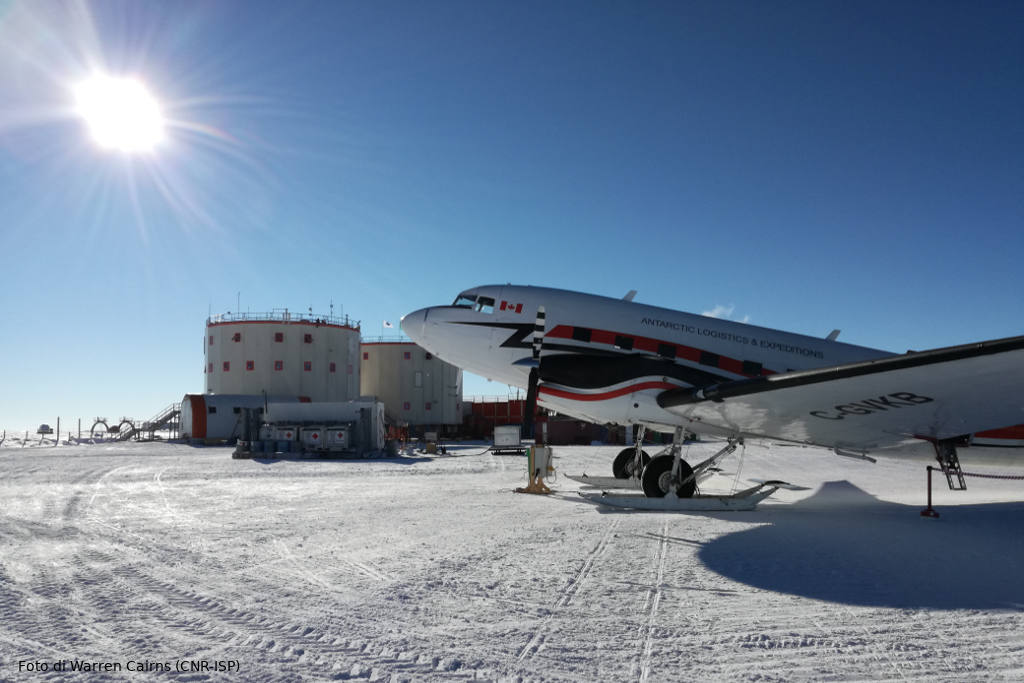
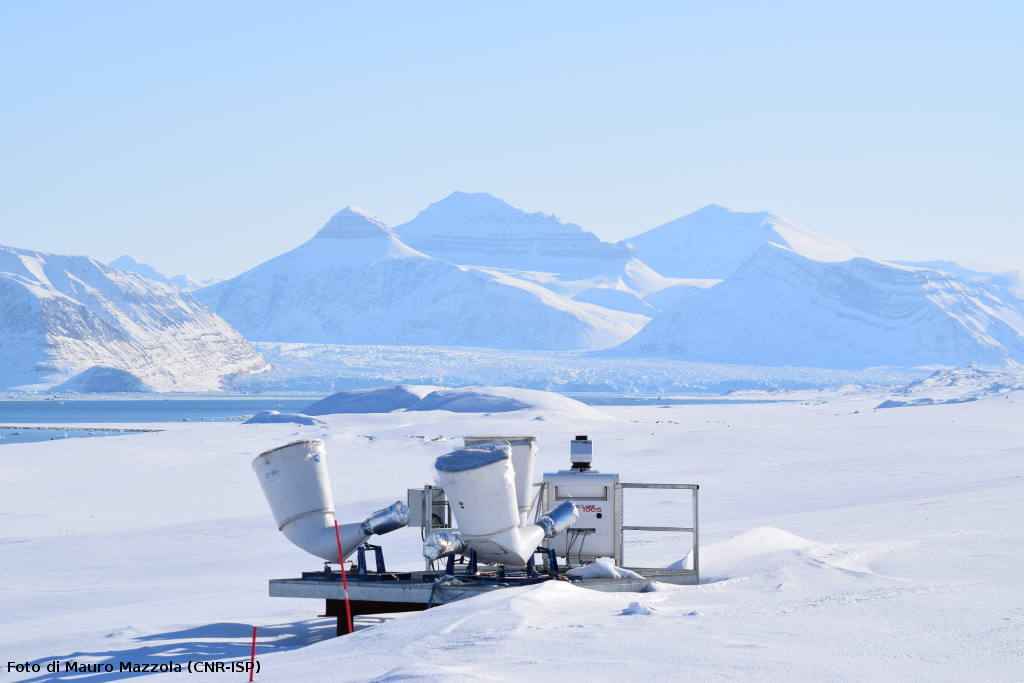
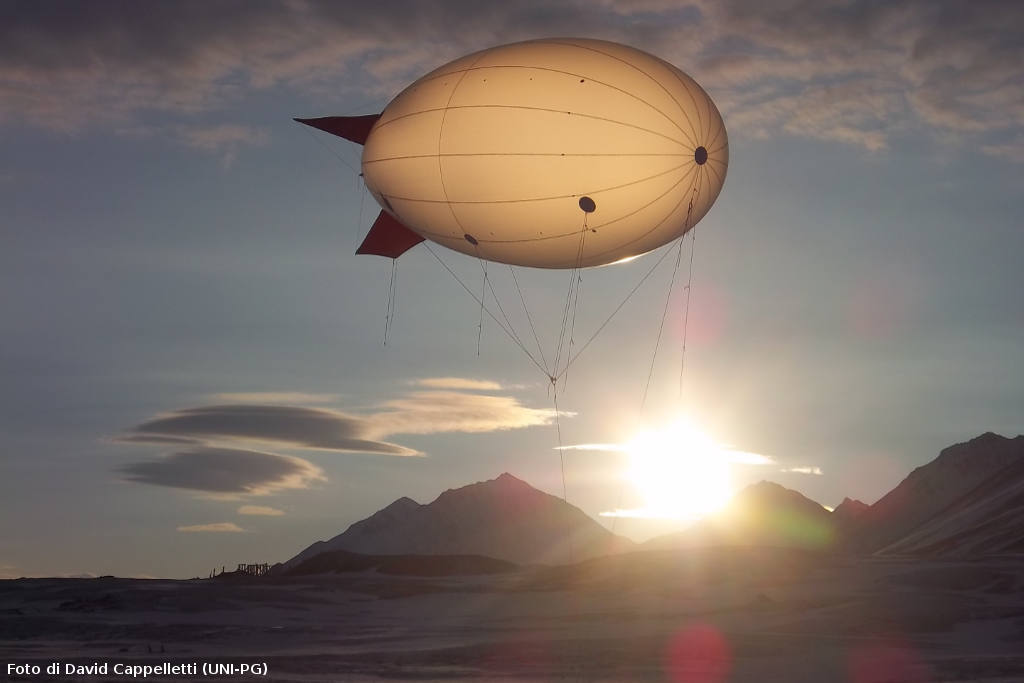
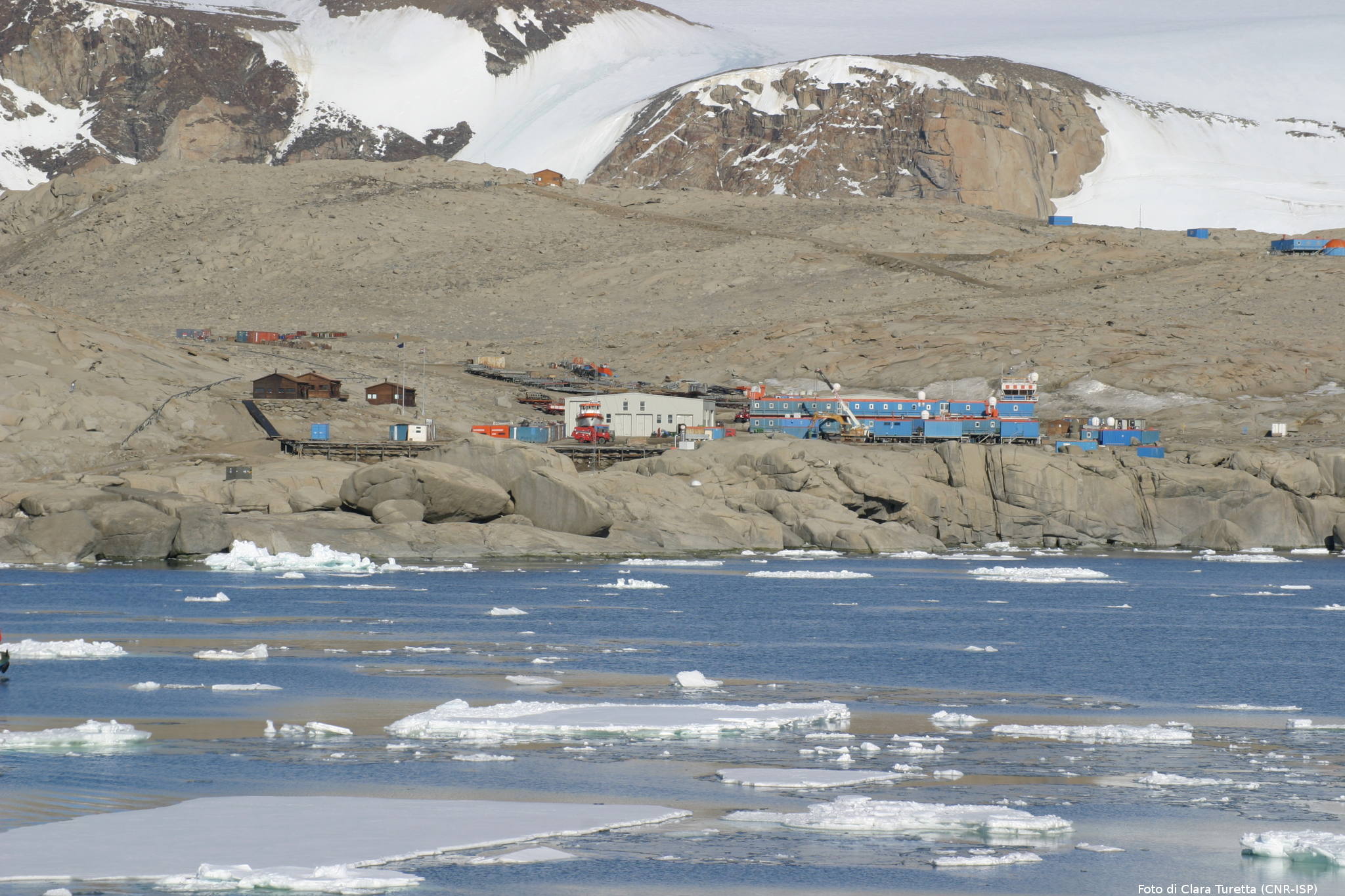
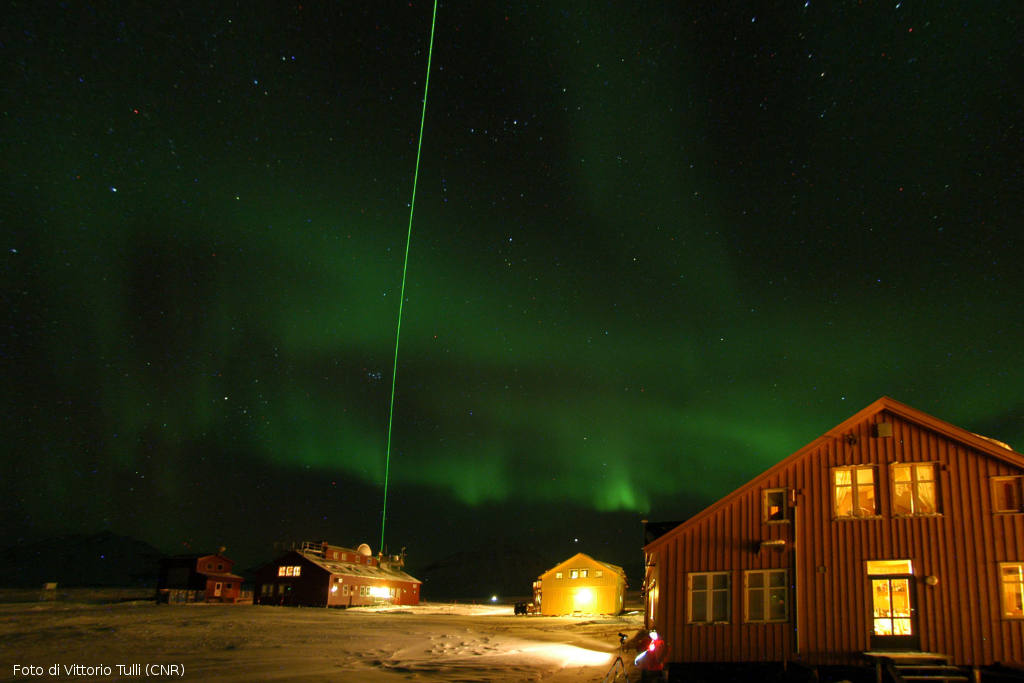
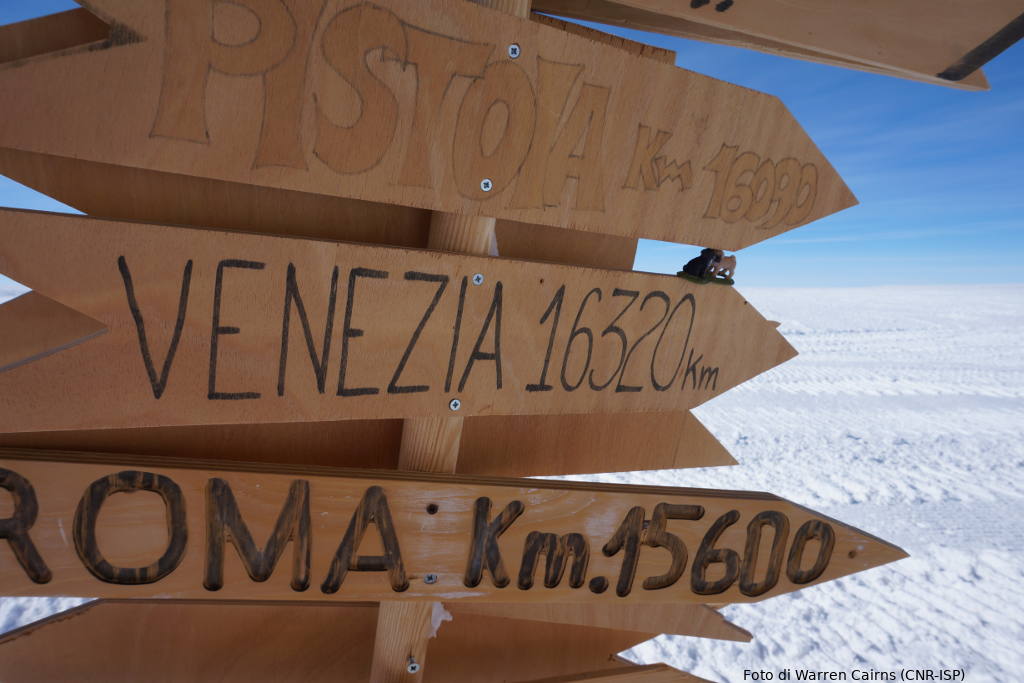

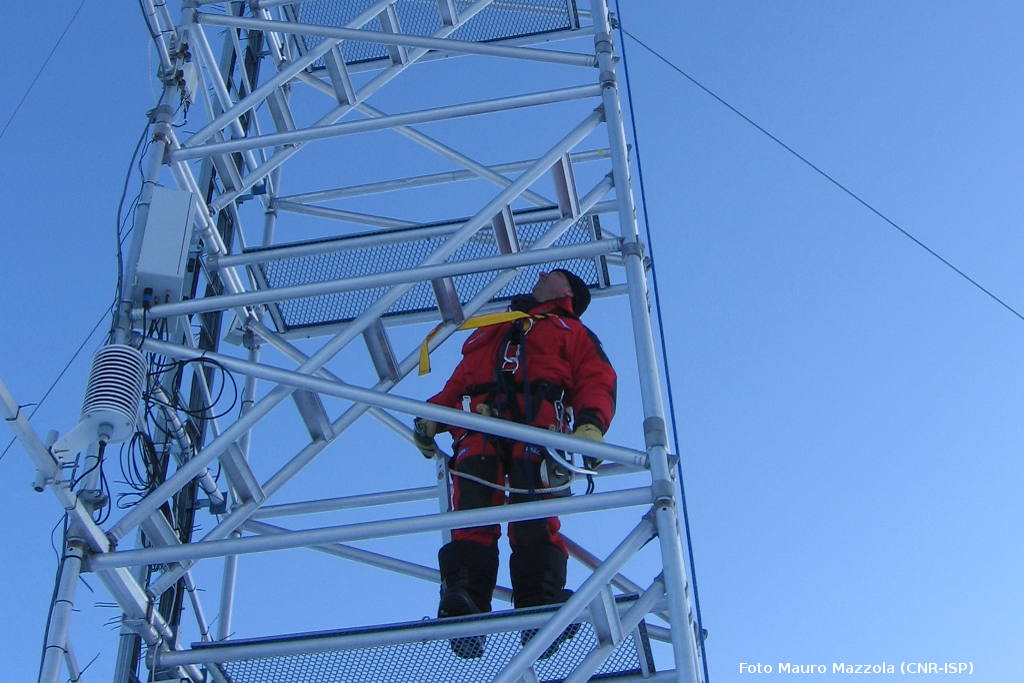
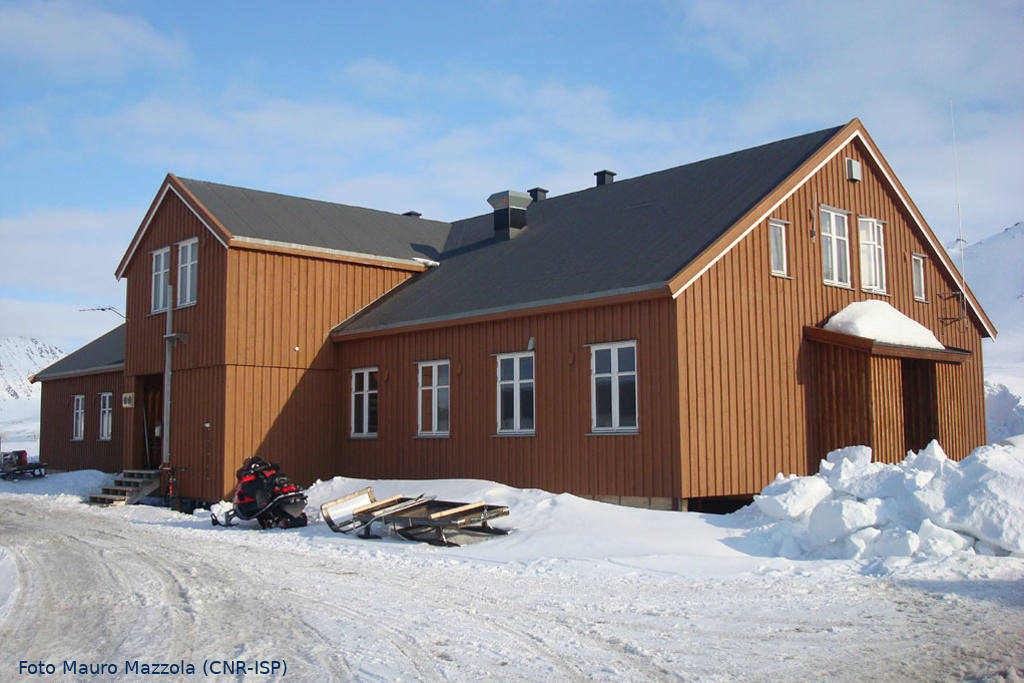
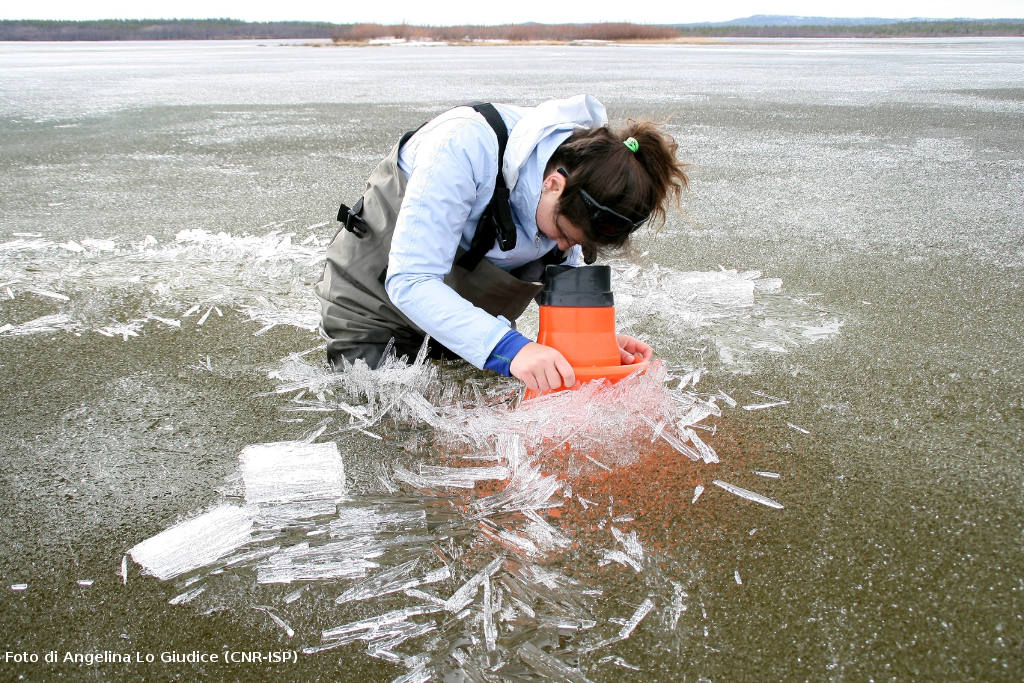
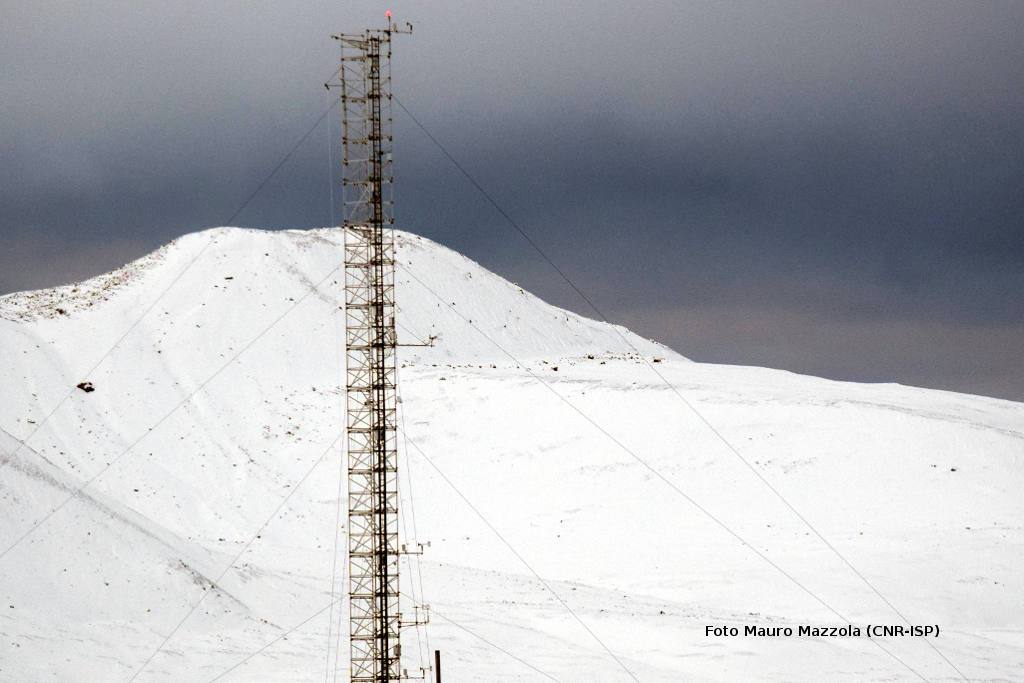
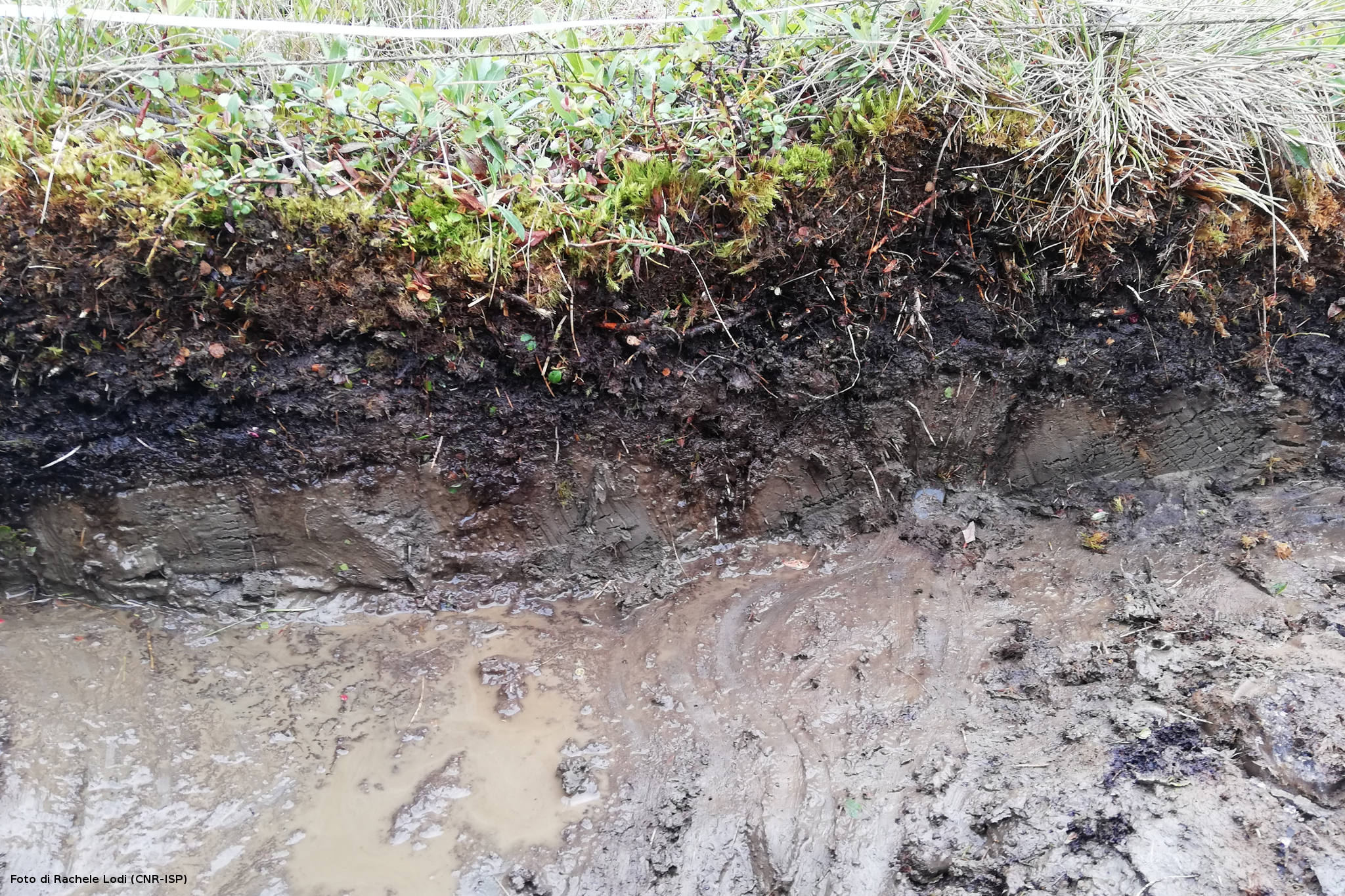
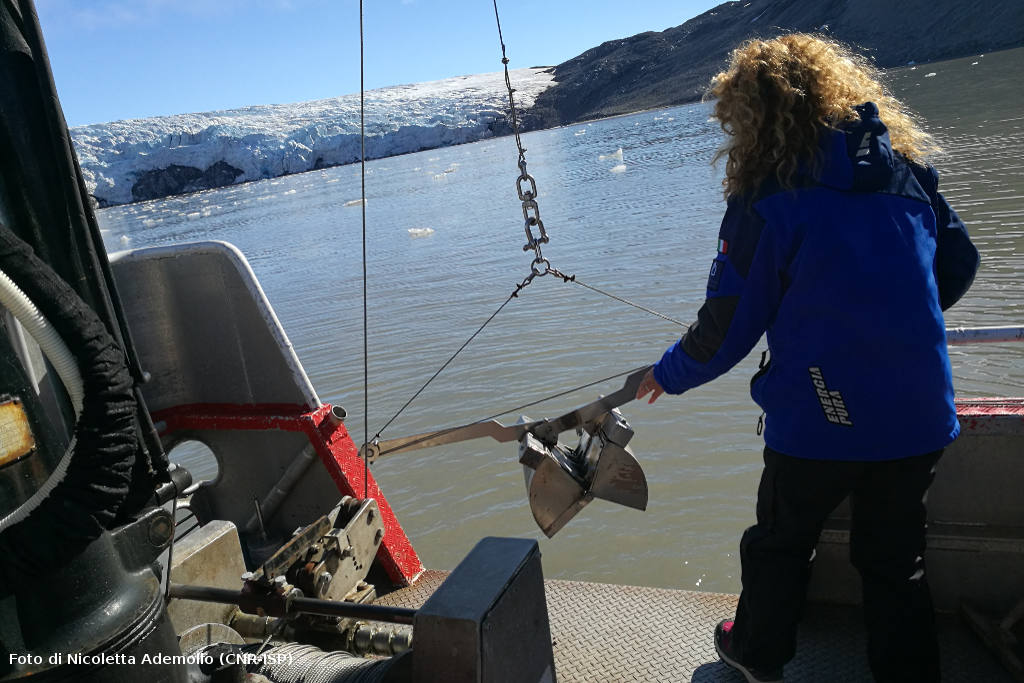
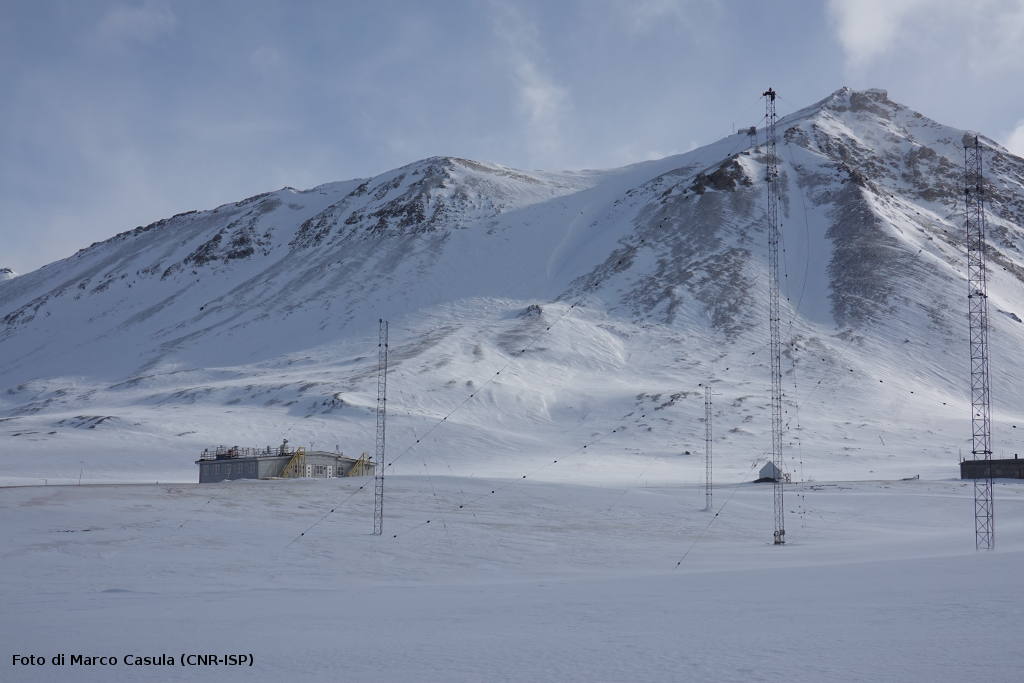
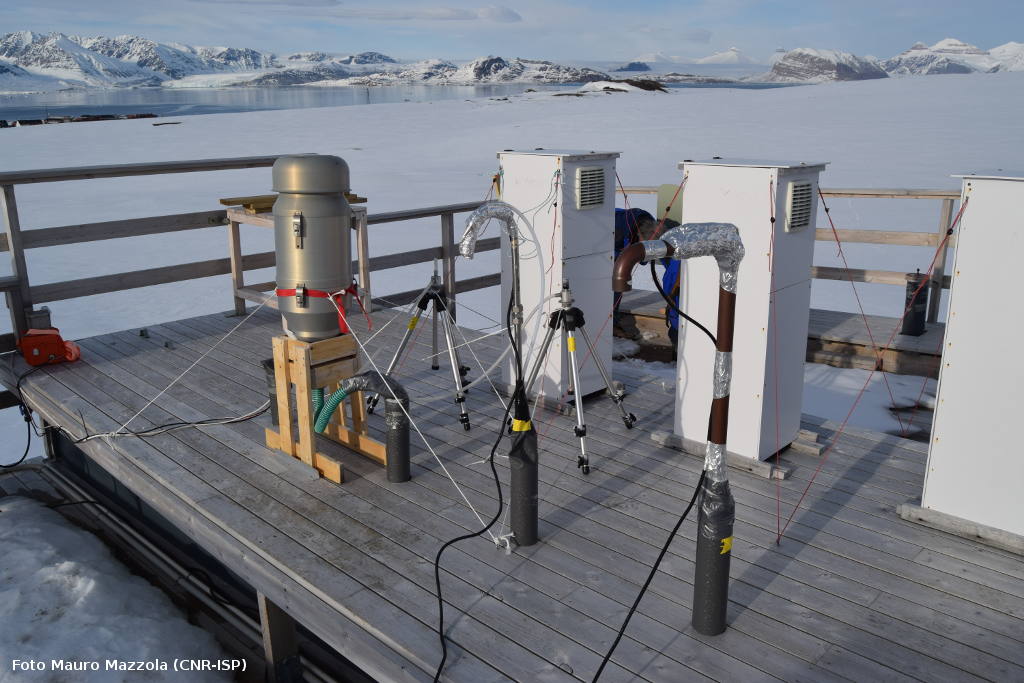
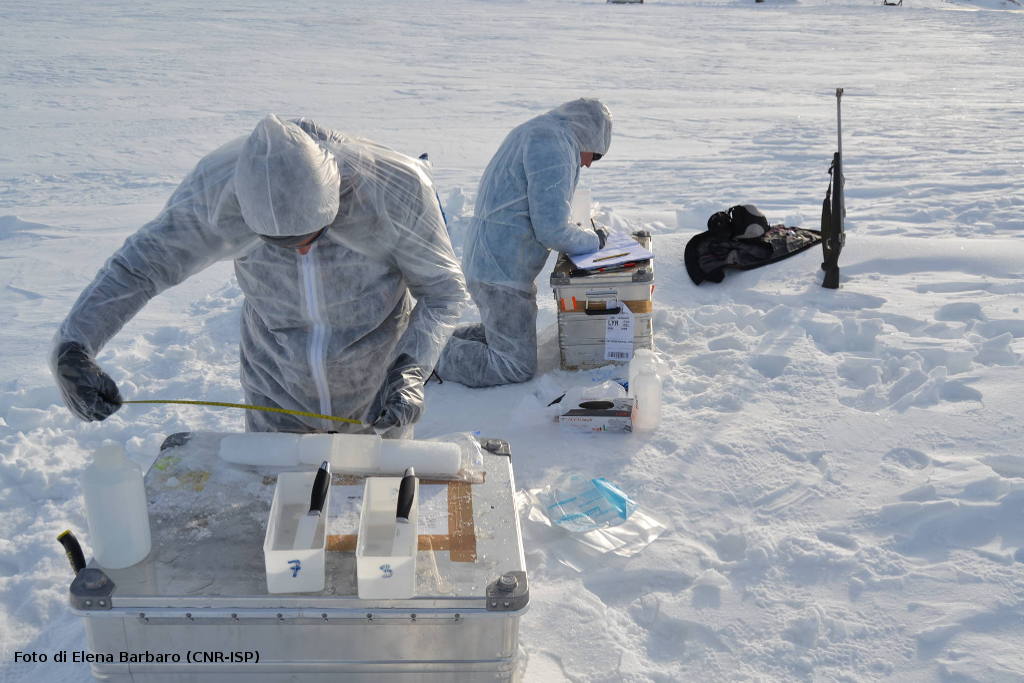
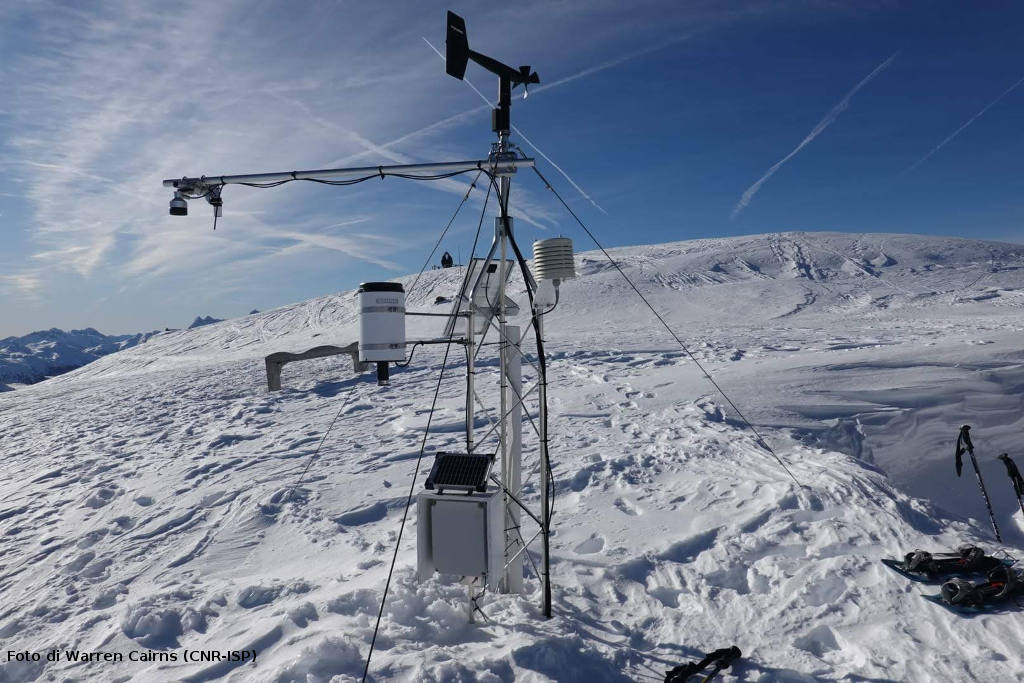
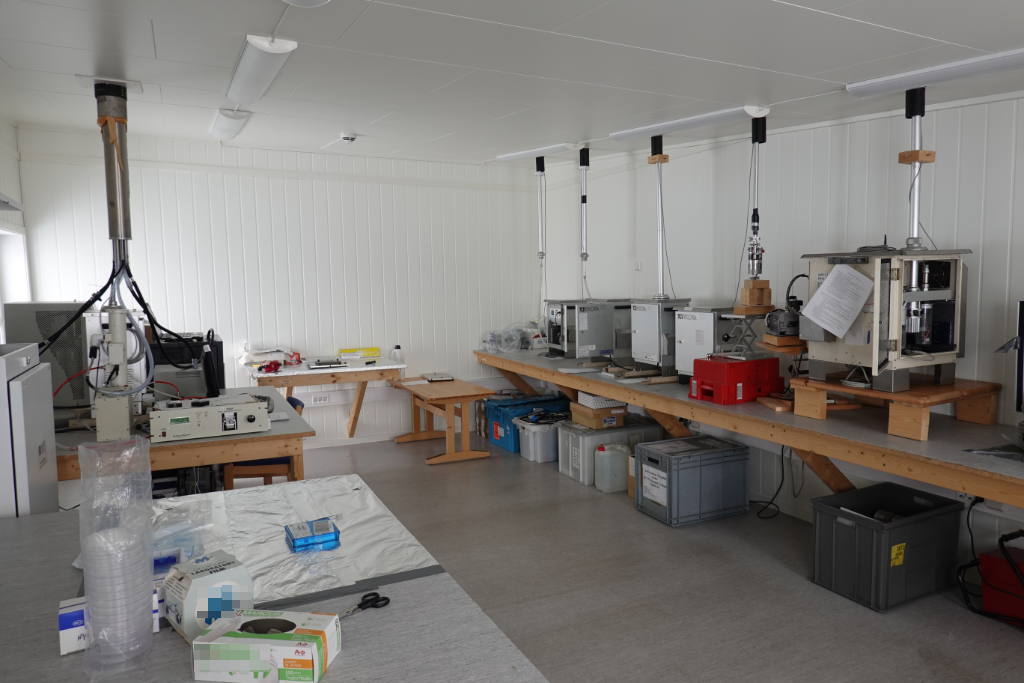
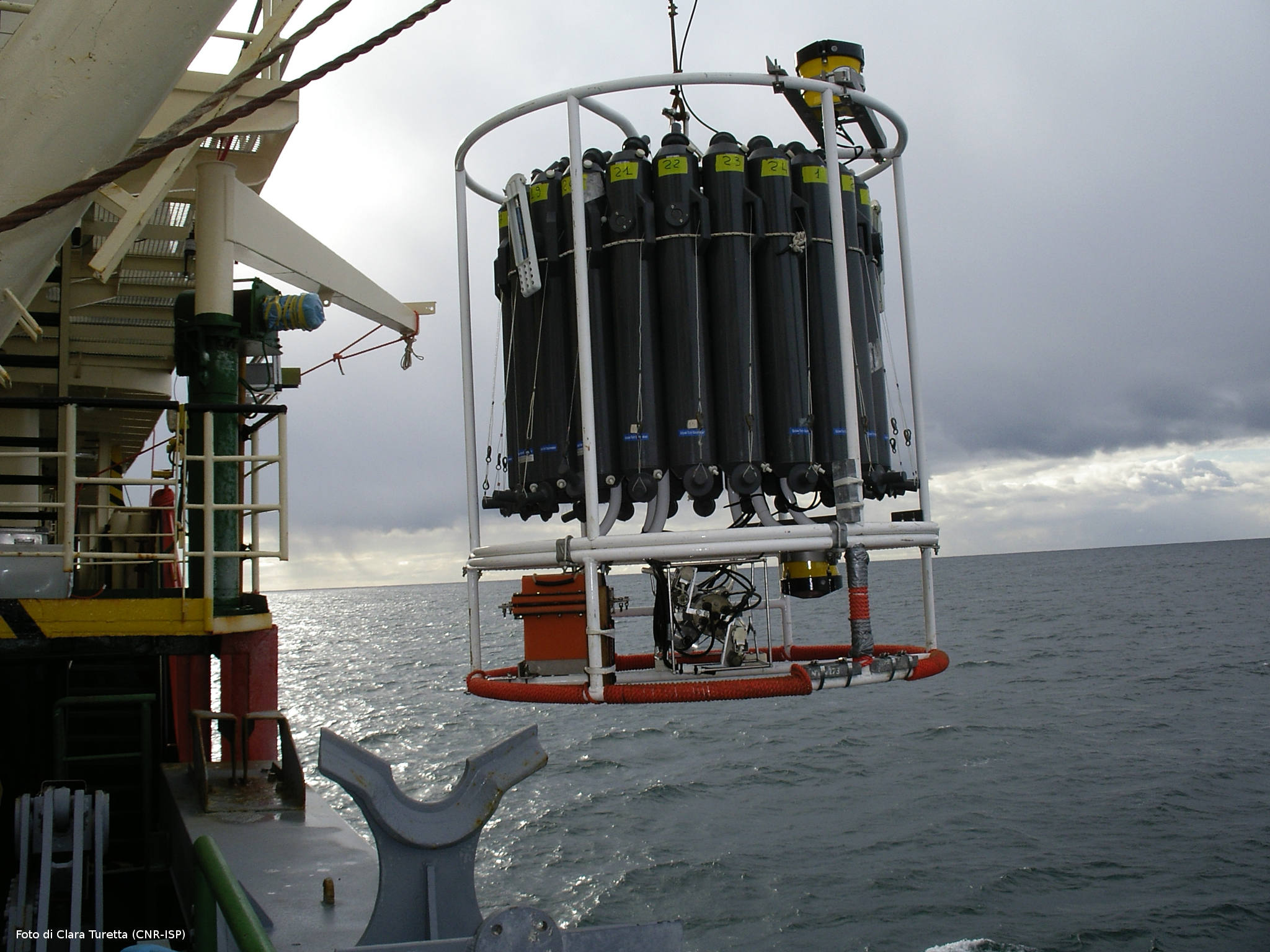
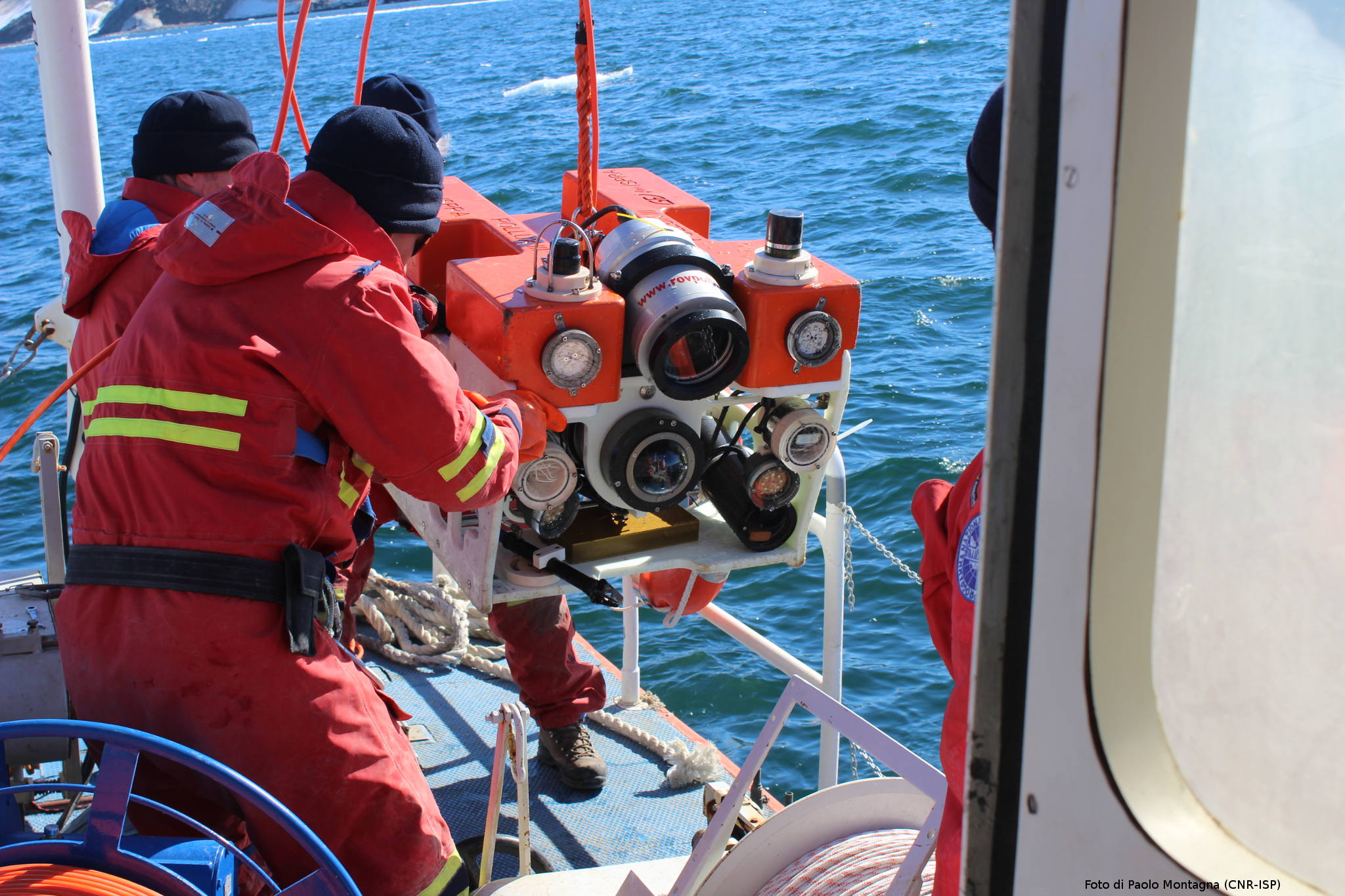





 The Italian presence in the Arctic became permanent in the mid-nineties, thanks to the opening of the CNR station in the Svalbard Islands. In recent years, the interests of the Italian scientific community have been extended to other remote areas such as Greenland, areas of the Arctic Ocean, the Tibetan plateau and the Himalayas. In addition to the CNR, OGS, ENEA, INGV, INAF, ASI and some universities carry out research activities in these areas. In addition, Italy has strong economic interests in the Arctic with numerous industries that are active in this area, including ENI, Finmeccanica, Telespazio, E-geos, and Fincantieri. Since 1997 the has CNR carried out research in Ny-Ålesund in cooperation with national and international universities and other scientific institutions. The topics include climate, manmade pollution, instability of the ozone layer, the physical properties of aerosols and clouds in their role in radiation balances, ecology, genetics, physiology, biochemistry and the molecular and cellular biology of polar organisms, the optical properties of glacial surfaces, geochemistry, environment and permafrost, oceanography aimed at studying the transfer of energy and matter in relation to glacial coverage and, finally, historical and geographical studies that evaluate the Italian contribution to polar exploration and research. Recently there has been an intensification in the study of legal issues of specific to the Arctic with advice given to the Ministry of Foreign Affairs within the framework of the Arctic round table.
The Italian presence in the Arctic became permanent in the mid-nineties, thanks to the opening of the CNR station in the Svalbard Islands. In recent years, the interests of the Italian scientific community have been extended to other remote areas such as Greenland, areas of the Arctic Ocean, the Tibetan plateau and the Himalayas. In addition to the CNR, OGS, ENEA, INGV, INAF, ASI and some universities carry out research activities in these areas. In addition, Italy has strong economic interests in the Arctic with numerous industries that are active in this area, including ENI, Finmeccanica, Telespazio, E-geos, and Fincantieri. Since 1997 the has CNR carried out research in Ny-Ålesund in cooperation with national and international universities and other scientific institutions. The topics include climate, manmade pollution, instability of the ozone layer, the physical properties of aerosols and clouds in their role in radiation balances, ecology, genetics, physiology, biochemistry and the molecular and cellular biology of polar organisms, the optical properties of glacial surfaces, geochemistry, environment and permafrost, oceanography aimed at studying the transfer of energy and matter in relation to glacial coverage and, finally, historical and geographical studies that evaluate the Italian contribution to polar exploration and research. Recently there has been an intensification in the study of legal issues of specific to the Arctic with advice given to the Ministry of Foreign Affairs within the framework of the Arctic round table.  Contrary to the National Antarctic Research Programme, research in the Arctic has not received structured funding until very recently. However, within the CNR, the Department of Earth Sciences and Technologies for the Environment (
Contrary to the National Antarctic Research Programme, research in the Arctic has not received structured funding until very recently. However, within the CNR, the Department of Earth Sciences and Technologies for the Environment ( On December 6th, 2006, the CNR, with the
On December 6th, 2006, the CNR, with the  Italian researchers involved in research in polar areas and other remote areas of the planet are involved in highly interdisciplinary research in life sciences, Earth and climate sciences, marine sciences, atmospheric and space sciences, in addition to technological innovation. But national research in polar areas has often been very fragmented and scarcely visible in an international context, because, although carried out within highly qualified research groups, they have so far only been individually recognizable and not associated with a national structure.
Italian researchers involved in research in polar areas and other remote areas of the planet are involved in highly interdisciplinary research in life sciences, Earth and climate sciences, marine sciences, atmospheric and space sciences, in addition to technological innovation. But national research in polar areas has often been very fragmented and scarcely visible in an international context, because, although carried out within highly qualified research groups, they have so far only been individually recognizable and not associated with a national structure. 


